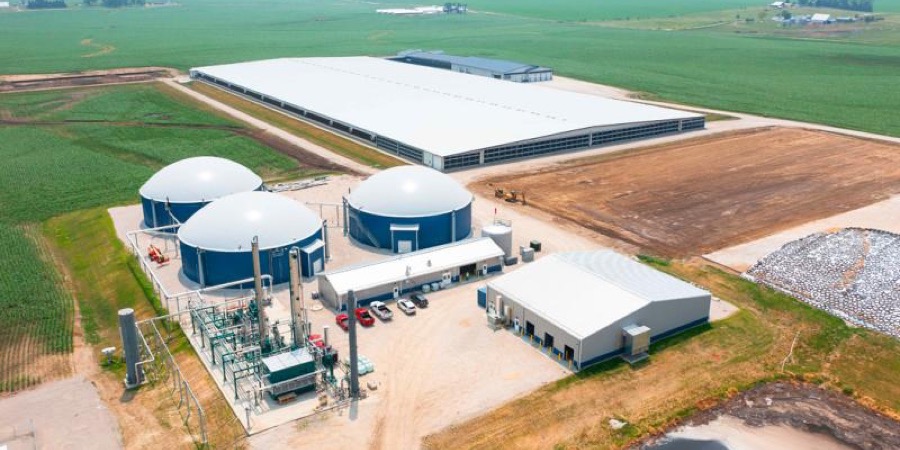Clean Energy Fuels Corp. has proudly announced the successful completion of its newest renewable natural gas facility in Marshall County, Iowa. The Marshall Ridge Dairy project is anticipated to generate an impressive 1.7 million gallons of low carbon-intensity RNG annually. Located in State Centre, Iowa, the three-digester facility is now producing high-quality RNG and injecting it into the national grid. RNG, derived from organic waste, is a sustainable fuel that provides an immediate and substantial reduction in carbon emissions within the transportation sector.
With a total investment of $42 million, the project was financed through one of Clean Energy’s production joint ventures and developed by Dynamic Renewables. The facility will convert methane from approximately 240,000 gallons of manure produced daily by the 8,000-cow herd into biogas, which will serve as a clean fuel for heavy-duty fleets across the country. Clean Energy is currently in the process of filing the necessary applications to generate federal and state environmental credits.
Clay Corbus, Senior Vice President for Renewables at Clean Energy, expressed the company’s appreciation for collaborating with forward-thinking farmers, enabling them to create a new revenue stream from what was previously considered waste. He emphasised that RNG is an immediate and intelligent solution to tackle harmful fugitive emissions, and the RNG produced at Marshall Ridge will directly contribute to clean fueling and decarbonisation efforts in commercial transport.
Kevin Blood, representative from Marshall Ridge Dairy, highlighted the significance of integrating an RNG facility into their farm operations. With over 60 years of experience in the dairy industry, their core business remains centered around milk production. However, the addition of an RNG facility allows them to effectively manage their manure while generating an additional source of revenue for their bottom line.
According to the US Environmental Protection Agency, agriculture accounts for nearly 10 percent of US greenhouse gas emissions, while the transportation sector accounts for an additional 28 percent. By capturing methane from farm waste, these emissions can be significantly reduced. RNG, produced from this captured methane and used as a transportation fuel, offers a substantial decrease in GHG emissions throughout its lifecycle compared to diesel fuel. This unique attribute enables RNG to achieve a negative carbon-intensity score, as it effectively reduces emissions at the source and in vehicles, solidifying its status as one of the few fuels with such a distinction.
For more information visit www.cleanenergyfuels.com












